I haven't been to your rehabilitation but have been to others and now I'm clean and sober and am so happy. I've read about the therapy programs you have and they sound great. My beautiful niece just got there yesterday and I'm Happy she is in such good hands. She will mak ...
About Sacred Heart Rehabilitation Center
When you come to Sacred Heart, you’ll have a lot of options to choose from such as the ClearView Women’s Specialty programs. Women can get withdrawal management, residential treatment, and medication assisted treatment (MAT). They also provide the same care for men and women through their general programs in either an inpatient or outpatient setting.
Their integrative approach is probably their stronger attribute. They combine the principles of 12 Step programming with a wide range of other proven therapies. They have medication assisted treatment programs using methadone, buprenorphine, and naltrexone. Their inpatient services include lectures, daily groups, and activities focused on each client’s recovery goals and treatment plans. You can get outpatient care both in person and online. Specialty groups are available, as well as individual and family counseling. Their center also operates detox units offering round the clock medical supervision.
Facility Overview
Latest Reviews
Rehab Score
Gallery
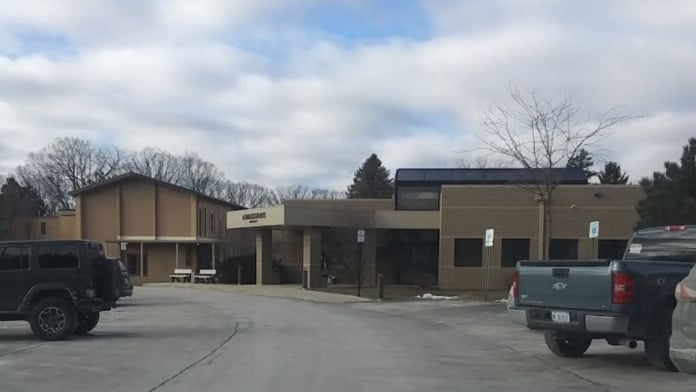
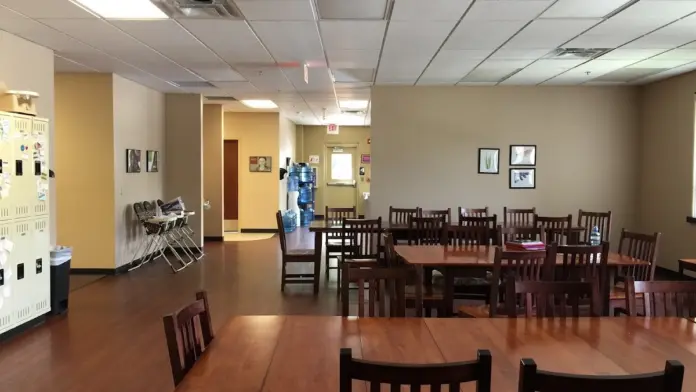
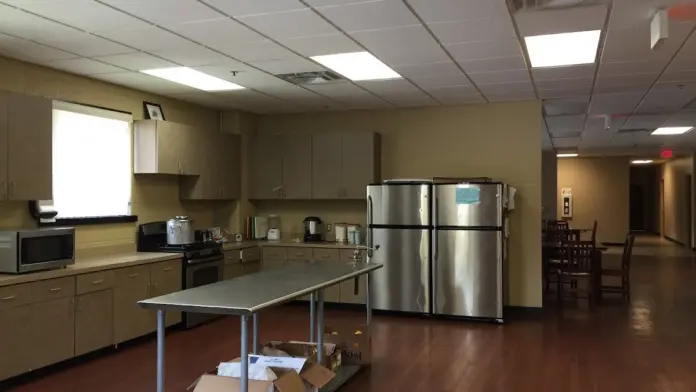
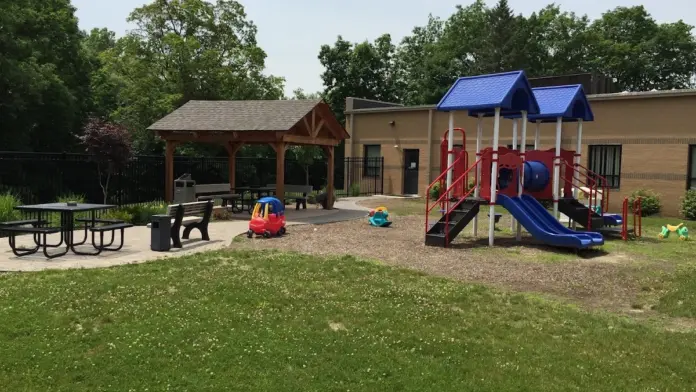
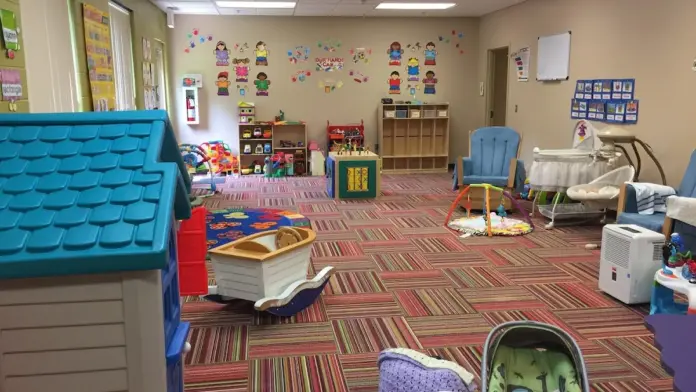
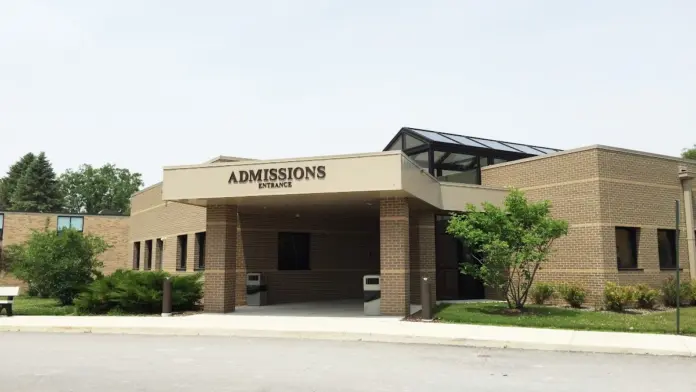
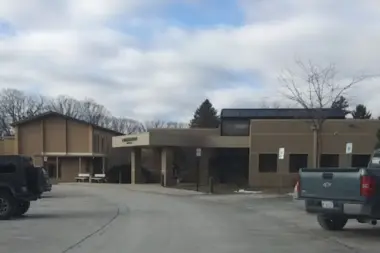
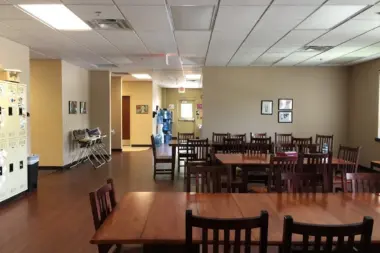
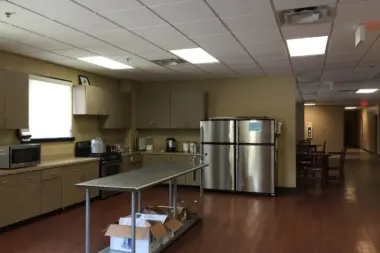
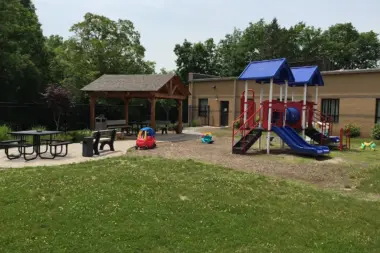
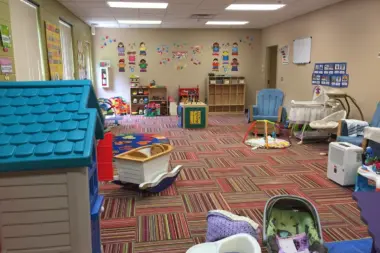
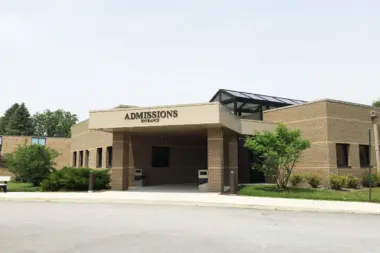
Other Forms of Payment
Private insurance refers to any kind of healthcare coverage that isn't from the state or federal government. This includes individual and family plans offered by an employer or purchased from the Insurance Marketplace. Every plan will have different requirements and out of pocket costs so be sure to get the full details before you start treatment.
Self-pay involves paying for treatment out of your own pocket. You can use savings or credit, get a personal loan, or receive help from family and friends to fund your treatment. If you don't have insurance or your insurance plan doesn't cover a specific program, self-pay can help ensure you still get the care you need.
Financial aid can take many forms. Centers may have grants or scholarships available to clients who meet eligibility requirements. Programs that receive SAMHSA grants may have financial aid available for those who need treatment as well. Grants and scholarships can help you pai for treatment without having to repay.
Sliding scale payments are based on a client's income and family size. The goal is to make treatment affordable to everyone. By taking these factors into account, addiction recovery care providers help ensure that your treatment does not become a financial burden to you or your family, eliminating one barrier to care.
Medicaid is a state based program that helps lower-income individuals and families pay for healthcare. Medicaid covers addiction treatment so those enrolled can use their coverage to pay for rehab. When a program accepts Medicaid the client often pays very little or nothing out of their own pocket.
Medicare is a federal program that provides health insurance for those 65 and older. It also serves people under 65 with chronic and disabling health challenges. To use Medicare for addiction treatment you need to find a program that accepts Medicare and is in network with your plan. Out of pocket costs and preauthorization requirements vary, so always check with your provider.
Military members, veterans, and eligible dependents have access to specific insurance programs that help them get the care they need. TRICARE and VA insurance can help you access low cost or no cost addiction and mental health treatment. Programs that accept military insurance often have targeted treatment focused on the unique challenges military members, veterans, and their families face.
Addiction Treatments
Levels of Care
Sacred Heart offers outpatient services, including group therapy, didactic sessions, and individual counseling, to support ongoing recovery. These services are ideal for clients transitioning from residential care, providing flexible treatment options in the Richmond area.
The inpatient program provides 24-hour clinical care in a structured environment, focusing on skill-building and recovery support. Therapy includes daily groups and activities tailored to individual treatment plans, helping clients transition from active addiction to stability.
Sacred Heart’s intensive outpatient program offers high-frequency therapy through daily groups, lectures, and activities. It is designed to help clients develop essential recovery skills while maintaining some independence, supporting a successful transition from inpatient treatment.
The facility provides aftercare programs focused on relapse prevention, community engagement, and ongoing recovery support. Therapy includes daily groups and individualized treatment plan reviews to ensure sustained progress after initial treatment.
Sacred Heart offers intervention services within its residential treatment programs, emphasizing the importance of stopping rescue efforts to motivate individuals with addiction to seek help. The program supports initiating recovery through structured, supportive therapy.
The program incorporates 12-step principles into daily therapy, lectures, and activities, helping clients develop a recovery foundation. Structured around peer support, it aims to facilitate a successful transition from active addiction to sobriety.
Sacred Heart provides residential sober living environments designed to support ongoing recovery. These structured settings focus on teaching new skills, community engagement, and peer support to help clients transition from active addiction.
The facility offers 24-hour clinical care in a safe, structured environment, focusing on teaching recovery skills and supporting emotional and physical wellness. Therapy includes daily groups and activities tailored to individual treatment plans.
Drug and alcohol addiction often takes a heavy toll on one's body. Over time, a physical dependence can develop, meaning the body physiologically needs the substance to function. Detox is the process of removing drugs and/or alcohol from the body, a process that can be lethal if mismanaged. Medical detox is done by licensed medical professionals who monitor vital signs and keep you safe, healthy, and as comfortable as possible as you go through detox and withdrawal. They also specialize in opiate detoxification services including Methadone and Suboxone use for detox.
Treatments
Sacred Heart offers inpatient treatment for alcoholism, utilizing daily group therapy, lectures, and activities tailored to individual recovery plans. The program emphasizes teaching new skills for a successful transition from active drinking to a recovery-positive lifestyle, supported by experienced staff in Richmond, Michigan.
This addiction recovery center provides high-intensity residential treatment for drug addiction, focusing on skill development and recovery support. Therapy includes daily groups and activities designed to meet individual needs, fostering a safe environment for initiating and continuing recovery.
Sacred Heart provides specialized dual diagnosis treatment in a structured residential setting, addressing co-occurring mental health and substance use disorders. Therapy is tailored through assessments and treatment plan reviews to meet each client’s unique needs, promoting long-term stability.
The facility offers comprehensive inpatient treatment for mental health and substance abuse, incorporating daily therapeutic groups, lectures, and activities. The program aims to teach essential skills for recovery, with personalized care plans supported by experienced clinicians.
Sacred Heart provides inpatient treatment for opioid addiction, including therapy designed to support recovery from substances like heroin and fentanyl. The program emphasizes teaching new skills and care coordination to facilitate a successful transition to a recovery-positive lifestyle.
Programs
Sacred Heart’s adult inpatient program provides high-intensity residential treatment with daily therapy, lectures, and activities. It aims to teach essential recovery skills and support clients in transitioning from active addiction to a stable, recovery-oriented lifestyle.
The LGBTQ program offers tailored therapy, assessments, and individualized treatment plans to meet the unique needs of LGBTQ clients. The program emphasizes a safe, supportive environment for recovery from substance use and mental health challenges.
Sacred Heart’s military program provides structured residential treatment with daily groups and activities designed to meet the needs of military personnel. The program focuses on recovery skills, emotional wellness, and community engagement to support active service members and veterans.
Clinical Services
Cognitive Behavioral Therapy (CBT) is a therapy modality that focuses on the relationship between one's thoughts, feelings, and behaviors. It is used to establish and allow for healthy responses to thoughts and feelings (instead of unhealthy responses, like using drugs or alcohol). CBT has been proven effective for recovering addicts of all kinds, and is used to strengthen a patient's own self-awareness and ability to self-regulate. CBT allows individuals to monitor their own emotional state, become more adept at communicating with others, and manage stress without needing to engage in substance abuse.
Group therapy is any therapeutic work that happens in a group (not one-on-one). There are a number of different group therapy modalities, including support groups, experiential therapy, psycho-education, and more. Group therapy involves treatment as well as processing interaction between group members.
In individual therapy, a patient meets one-on-one with a trained psychologist or counselor. Therapy is a pivotal part of effective substance abuse treatment, as it often covers root causes of addiction, including challenges faced by the patient in their social, family, and work/school life.
Motivational Interviewing (MI) is a clinical approach to helping people with substance abuse issues and other conditions shift behavior in positive ways. It is more goal-oriented than traditional psychotherapy, as MI counselors directly attempt to get clients to consider making behavioral change (rather than wait for them to come to conclusions themselves). Its primary purpose is to resolve ambivalence and help clients become able to make healthy choices freely.
Trauma therapy addresses traumatic incidents from a client's past that are likely affecting their present-day experience. Trauma is often one of the primary triggers and potential causes of addiction, and can stem from child sexual abuse, domestic violence, having a parent with a mental illness, losing one or both parents at a young age, teenage or adult sexual assault, or any number of other factors. The purpose of trauma therapy is to allow a patient to process trauma and move through and past it, with the help of trained and compassionate mental health professionals.
Both internal and external factors can put stress on a relationship. Couples therapy helps you and your partner work through those stressors and find healthy ways to deal with challenges as they arise.
Family therapy is often recommended for family units with a member undergoing drug or alcohol rehabilitation. Family therapy helps to foster communication and conflict resolution that creates a supportive environment. This helps the loved one who is struggling with addiction.
Amenities
-
Residential Setting
-
Private Rooms
Staff & Accreditations
Staff
Paula Nelson
President & CEO
Pam Ardoin
Chief Financial Officer
Denise Verschure
Chief Operating Officer
Estee Weber
Chief Technology & Innovation Officer
Carolyn Parasick
Vice President of Human Resources
Tammy Murray
Director of Engagement & Recipient Rights Officer
Dr. Janice Romanik
Medical Director
Polly Fisher
Board Chair
Accreditations

The Substance Abuse and Mental Health Services Administration (SAMHSA) is a branch of the U.S. Department of Health and Human Services. Established in 1992 by congress, SAMHSA's mission is to reduce the impact of substance abuse and mental illness on American's communities.
SAMHSA Listed: Yes

The Commission on Accreditation of Rehabilitation Facilities (CARF) is a non-profit organization that specifically accredits rehab organizations. Founded in 1966, CARF's, mission is to help service providers like rehab facilities maintain high standards of care.
CARF Accreditation: Yes
Accreditation Number: 31810
Contact Information
400 Stoddard Road
Richmond MI, 48062